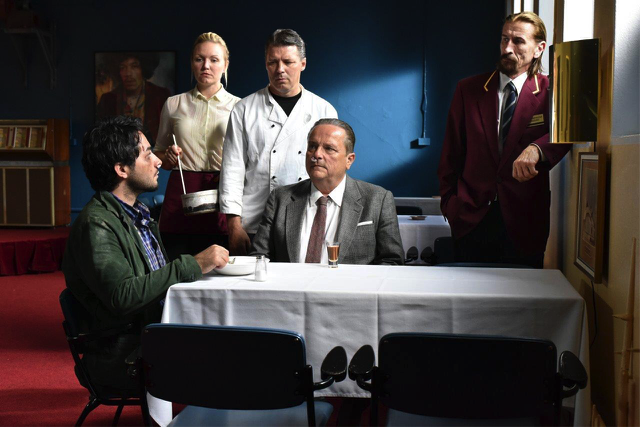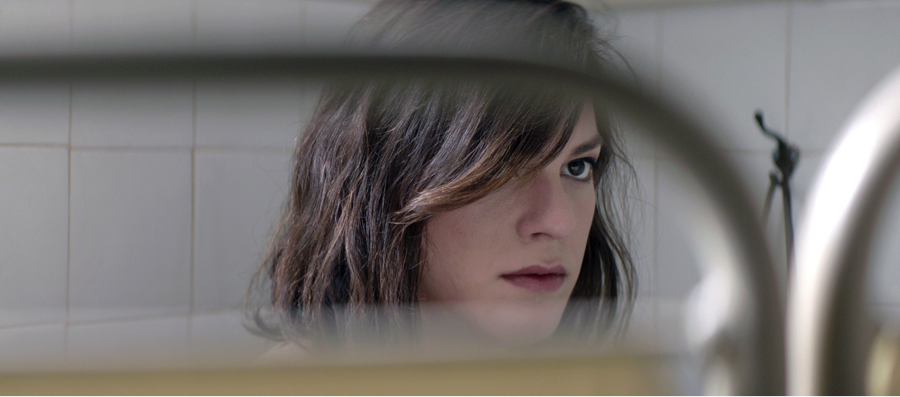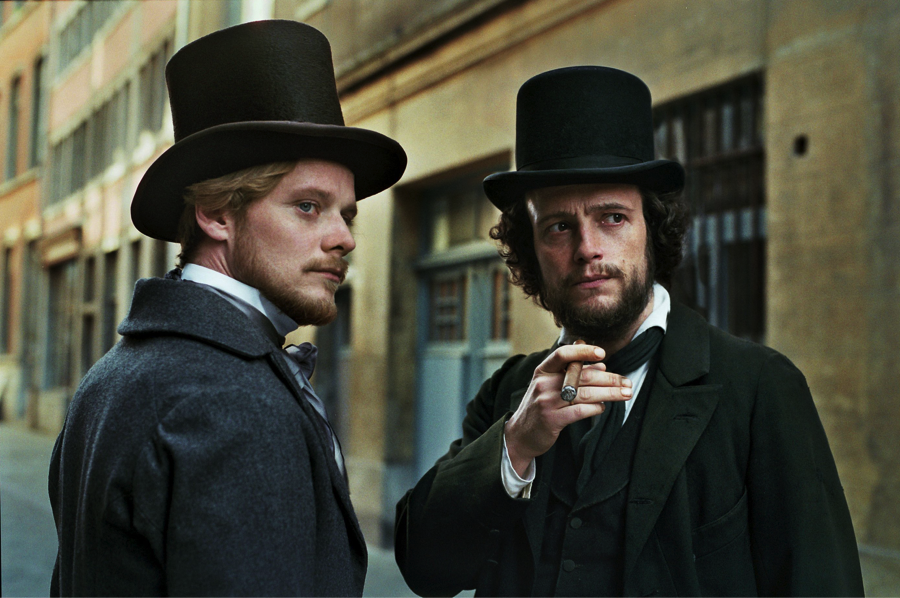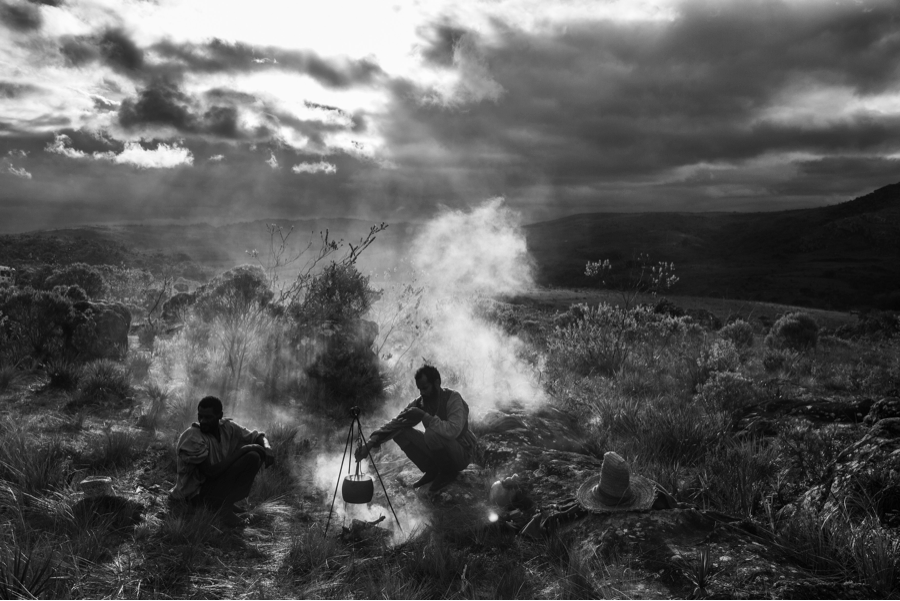Between Resistance and Affirmation: The 2017 Berlin Film Festival
Skip other details (including permanent urls, DOI, citation information)
: This work is licensed under a Creative Commons Attribution 3.0 License. Please contact [email protected] to use this work in a way not covered by the license.
For more information, read Michigan Publishing's access and usage policy.
On the opening day of the 2017 Berlin Film Festival, the German daily Taz headlined, tongue-in-cheek, “The greatest Berlinale in the WORLD! It’s true! All other Berlinales are fake.” While that claim may be literally true, this year’s edition was arguably not that great, especially if compared to last year’s stellar line-up. Particularly the Competition lacked the stand-out achievements of recent years, as well as the Hollywood star power, much courted by festival director Dieter Kosslick, presumably because celebrities were tied up with Oscar-promotion at home. Nevertheless, there were several strong entries, foremost among them the audience favorite Toivon Tuolla Puolen/The Other Side of Hope by Aki Kaurismäki, a satirical refugee drama set amongst the director’s usual cast of melancholic loners, losers and music lovers.
Shot in muted colors by the director’s long-time cinematographer Tilmo Salminen, and set in under-furnished, sparsely decorated interiors, the film follows Syrian refugee Khaled (Sherwan Haji), who arrives as a stowaway in Helsinki to file for political asylum, and Wikstrom (Sakari Kuosmanen), a fifty-something fugitive of a different kind, who leaves behind his wife and job as shirt salesman to open a restaurant. The Finnish authorities do not believe Aleppo to be a dangerous place, at least not by their standards, and turn down Khaled’s appeal. Forced to become one of the many undocumented refugees hiding from authorities in European cities, he soon crosses paths with Wikstrom, who, after a fist-fight, provides him with a kitchen job and fake papers, and even helps him to search for his lost sister.
Throughout the film, such acts of gentle kindness by strangers offset the coldness of bureaucrats and the menace of right-wing thugs who threaten Khaleb and his kind. As we have come to expect from this director, the soft sarcasm and hard drinking of his gruff and monosyllabic characters hide a deep and empathic humanity. In his 2011success Le Havre, Kaurismäki told the story of a failed French writer who shelters an African boy and helps him escape to England. The Other Side of Hope now takes on the more complicated question how to create a home for those who have none to return to.
During the televised Award Show, Kaurismäki was presented with the Silver Bear for best director. When the veteran filmmaker was slow to come up on stage, host Anke Engelke marched the trophy to his seat, quipping that “if the director doesn’t come to the Bear, the Bear has to come to the director.” Kaurismäki’s muted reaction—in interviews during the festival he announced his retirement—is of a piece with the laconic tone of his film, but one should not mistake understatement for a lack of caring. Kaurismäki and his deadpan characters may not say much, but their deeds speak volumes.
If an award for The Other Side of Hope was widely anticipated, the Silver Bear for best actor unexpectedly went to Georg Friedrich for his performance in Helle Nächte/Bright Nights by Thomas Arslan. Friedrich here plays engineer Michael, a divorcee who is awkwardly trying to reconnect with his estranged teenage son during a road trip to northern Norway for his father’s funeral. During their time together, Michael comes to realize that his distance to his own father, about whose final years he knew next to nothing, has come full circle in his relationship with his son. Alternating between strained attempts at family-building and hypnotic shots of a barren, gray-and-white landscape, Bright Nights revels in a minimalism that Arslan had seemingly left behind with his recent excursions into genre cinema (In the Shadows and Gold), making the film an unexpected but also rewarding throwback to his early career.
Friedrich’s screen persona as an edgy and latently violent man with proletarian roots, first established in his films with Ulrich Seidl, is toned down considerably in Bright Nights, but it comes through in the supporting role he plays as the hard-up fairground entrepreneur Erich in Wilde Maus/Wild Mouse, the directorial debut of Austrian actor-comedian Josef Hader. Well-known in German-speaking countries as the disheveled sleuth Simon Brenner from a popular series of Alpine thrillers, Hader here casts himself as the respected middle-aged music critic Georg who, after more than twenty-five years on the job, is suddenly fired by his suave German boss.
Keeping the news from his wife, a depressed and irate Georg vows to get even, first targeting the boss’ car, then his house, and finally the man himself. In the brutish Erich, a former schoolmate who used to beat him up regularly, Georg finds an unlikely partner for his outlandish quest. A satire aimed at the smugness of the Austrian middle-class, on a more serious note Wild Mouse registers the human fallout of neoliberalism, and how disturbingly short the path from anger to violence has become. As with Kaurismäki before him, Friedrich did his best to stay in character when presented with the Silver Bear statuette, sticking his chewing gum onto its paw before mumbling a few words of gratitude: épater le bourgeois never seems to grow old.
In contrast to these chilled Europeans, Chilean director Sebastián Lelio displayed unrestrained joy and excitement when he and his co-writer Gonzalo Maza accepted the award for Best Screenplay for Una mujer fantástica/A Fantastic Woman, a drama about a transgender woman, Marina, who, after the sudden death of her much older lover, faces hostility from his family and ex-wife. Marina’s right to grieve her beloved is challenged, and soon she is further humiliated by a doctor, who addresses her with ‘he,’ and a female police officer who bluntly asks if her lover paid for her services. The increasingly brutal scare tactics of her lover’s family recall the Pinochet era, drawing parallels between a past dictatorship and a present climate that will resonate not only with Chilean audiences.
The superb Daniela Vega, herself transgender, stars as the vulnerable yet resilient Marina. Avoiding any large displays of emotions, Vega subtly shows how Marina frays at the edges, often captured in extensive close-ups that highlight not only her turmoil but also her inner beauty. The naturalistic portrayal of Marina’s victimization contrasts with repeated flickers of fantasy during which the film slows down, most memorably in a translucent, final scene that triumphantly celebrates her courage.
Chilean directors have accounted for some of the strongest Latin American motion pictures in recent years, with films by Lelio, Patricio Guzmán and Pablo Larraín winning awards at previous Berlinales. With the very different biopics Neruda and the Hollywood-produced Jackie, Larraín directed not just one but two stand-outs this year. And the next generation seems close behind, as Lisette Orozco demonstrates in her debut, El pacto de Adriana/Adriana’s Pact, a very personal documentary about Adriana Riva, the filmmaker’s favorite aunt, remembered mostly for her worldly flair and her annual gift-laden visits.
Those cozy family memories are suddenly disturbed when, during a 2006 visit in Santiago, Riva is arrested and charged with working for DINA, the Gestapo-like secret police operating under Pinochet. The rest of the family knew but never told Orozco, maintaining that the beloved aunt had never done them any harm. A mixture of suspicion, betrayal, and curiosity prompts Orozco to begin chronicling her relationship with her aunt by filming their Skype conversations after Riva had jumped parole and fled to Australia.
The filmmaker’s archival research and interviews with Riva’s co-workers soon leave viewers with no doubt that Riva was not just, as she claims, merely an apolitical bystander but rather an active participant in torture—a revelation that Orozco, hoping against hope, is at first reluctant to accept. When Riva’s edifice of lies finally crumbles, we watch with mixed emotions as the director, suddenly very alone, acknowledges the somber truth. The spectacle of the director’s loss of innocence, like Marina’s bullying in Lelio’s film, is a haunting reminder of the potent afterlife of the Chilean dictatorship, and the raw, personal note of the film makes up for some of its technical imperfections.
The Other Side of Hope and A Fantastic Woman were two of several strong entries that passionately side with the kind of minority groups who have increasingly been targeted in Europe and the United States in recent months. This holds true as well for the critically acclaimed and Oscar-nominated I Am Not Your Negro, which gains much of its impact from the disturbing timelessness and urgency of writer James Baldwin’s analysis of race relations in America. The film won the festival’s audience award and was presented in Berlin by director Raoul Peck, a Haitian-born filmmaker and activist who is a frequent guest at the Berlinale and has deep roots in the city.
Peck also presented his feature Le jeune Karl Marx/The Young Karl Marx, a wild romp through the decade before 1848, when Marx (August Diehl) famously first befriended Friedrich Engels (Stefan Konarske). During this period, the two young Turks made a name for themselves by challenging some of Europe’s most recognized revolutionary thinkers, their fame culminating with the penning of the Communist Manifesto.
The Young Karl Marx mixes a primer in Marxism that gives much room to political speeches and debates with a more traditional costume drama that features our heroes in coattails and stovepipe hats, enjoying, seemingly without self-awareness, the more bourgeois sides of life such as fine French wine and the services of a maid. Asked about the connection between the two projects, Peck noted that Marx and Baldwin “shared the idea that human existence needs to develop both individually and collectively,” yet the difference between the final films could not be greater. In contrast to the portrait of James Baldwin, The Young Karl Marx ultimately has little to say about why we should (re-)read this author today. Inspired by the letters exchanged between Marx and Engels, it’s a bromance that strives to entertain, serving up the kind of culinary fare that Brecht, Marx’s most important literary heir, so disliked.
Marx’s philosophy reacted against the industrial revolution’s forms of inequality, poverty and dependency in Europe. These appalling conditions were even more pronounced in the Portuguese colonies in Brazil, which was drained of its resources, particularly gold and minerals, through the forced labor of African slaves. This potent clash of privilege and class, about which Marx had much to say, and race, which he largely ignored, is at the heart of two impressive Brazilian films: Vazante, by Daniela Thomas, and Marcelo Gomes’ Joaquim.
The latter chronicles the life of Joaquim José da Silva Xavier (played by Julio Machado), a Brazilian independence fighter and precursor to Simon Bolivar, who was executed in 1792. The film opens with a startling shot of Joaquim’s decapitated head, lamenting his fate from beyond the grave in a whispered voice-over, an early indication that this is not a traditional biopic (Joaquim was, in fact, hanged). We first meet him alive in a mineral-rich outpost in Minas Gerais, just as supplies are drying up, biding his time as a second-in-command while tasked with catching gold smugglers. Joaquim is frustrated in his aspirations; he suffers from the humiliations that he is subjected to by his Portuguese superiors and is unable to stop the rampant corruption that he witnesses.
His slender means do not allow him to purchase the freedom of a slave he loves. When he is ordered to lead a dangerous expedition into even more remote areas to search for precious stones, he sees an opportunity for a long-awaited promotion, and hence the means to get the woman. Gomes’ directing gives preference to landscape and animals, to hair and skin, and to the raw physicality of life, making the film a full immersion into a time and place rather than a portrait of the titular hero, whose conversion in the short third act from a foot-soldier into a rebel is a bit hard to follow. But that seems of no concern to Gomes, whose film breaks off before Joaquim becomes a national hero under the nickname Tiradentes. When late in the film he recites the enlightened principles of the founding fathers of the United States—freedom of speech, equality, non-interventionism—laughter broke out among the viewers of the press screening that I attended, an indication how removed from such notions this country—and Brazil, for that matter—presently seems.
The struggles of a tapped-out mine in a remote corner of colonial Brazil are also at the setting of Vazante, the stunning directorial debut by Daniela Thomas, a long-time collaborator of Walter Salles. Yet while the subject matter may appear similar to Gomes’ film, a very different look and tone, with strong echoes of Joseph Conrad, informs this slow-burning, black-and white drama about race relations. We are now in the 1820s and the Brazilian provinces are forced to shift to agriculture. Antonio (Adriano Carvalho) returns to his hacienda with a caravan of goods and slaves only to learn that his wife and unborn baby have died in labor.
Distraught with grief, he takes the very young second daughter of his impoverished brother as his new bride. With anguish we watch their quasi-incestuous relationship, as well as the rising tensions between the ruling family and their diverse slave community, which is made up of black Brazilian natives and newcomers who do not share their language and have yet to learn how to work the land. The barren landscape, captured in wide-screen photography, takes on symbolic meaning, contrasted with carefully composed interiors that drip with decay and undoing. Sparse on dialogue and rich in atmosphere, Vazante is a haunting and deeply unsettling film about racial cruelty and men suppressing women and slaves, which slowly builds to an unforgettable, savage climax.
No gold or precious stones are ultimately found in Joaquim or Vazante, but a real gem was Casting, the third feature by Nicolas Wackerbarth, which chronicles the last days of pre-production for a television remake of Rainer Werner Fassbinder’s 1972 camp classic The Bitter Tears of Petra von Kant. With the crucial role of Petra yet to be filled, we are privy to a power struggle between producer, director and crew as a slew of actresses file through the studio to audition. The ensuing catfights, driven in equal measure by vanity and despair, and the acts of overt and covert manipulation are well worthy of the sadomasochism of Fassbinder’s film and original play.
A key figure in this ensemble of divas is Gerwin (a marvelous Andreas Lust), an extra who fills in as dialogue partner for Petra’s character while harboring secret hopes of being cast himself. Since auditioning is a situation that every actress is (painfully) familiar with, Wackerbarth had them improvise their lines, giving this snappy, dialogue-driven film a strong ring of truth. Casting was itself made for German television but luckily found its way into the Forum sidebar; it was the very first film shown during the festival and one with real staying-power.
While the richly diverse Forum always harbors treasures, the Competition did not live up to what’s expected of an A-level festival. Perhaps it was therefore not that ironic that one of the most memorable films I saw during my sojourn to the German capital was not part of the Berlinale line-up at all but screened on my transatlantic flight—François Ozon’s post-World War I drama Frantz. Frantz was the first name of a young German soldier who was killed in the trenches and, when the film opens, is mourned by his parents and his fiancée, Anna, who lives with them.
While grief-stricken Anna resists the advances of new suitors, she perks up when she first espies a mysterious stranger placing flowers on Frantz’ grave. He is Adrien, an attractive Frenchman with a Proustian mustache who claims to have been a close friend of the deceased. At first reluctant to let a Frenchman into their house, the parents and especially Anna are eventually won over by his charm and comforted by his stories about time shared with Frantz. What begins as a story of delicate rapprochement and tender romance soon turns into a twisting tale (including extensive flash-back sequences) that keeps viewers completely enthralled with its many surprising turns.
Beautifully shot in black-and-white, with intermittent, delicate use of color, the film evokes the tone and setting of Michael Haneke’s The White Ribbon while its plot is an extended homage to Ernst Lubitsch’s pacifist Broken Lullaby (1932, based on a play by Maurice Rostand). Yet unlike Lubitsch, who tells the story from the French soldier’s perspective, Ozon places Anna (Paula Beer in a breakout performance) at the center of the film. Known for his cinematic portrayal of witty, sexy, and strong-minded French women (Swimming Pool and 8 Women) the auteur reinvents himself in this subdued but powerful German-language tale about deception and the necessity of lies.
Surprisingly overlooked for the main awards at the last Venice film festival, Frantz would have been a strong contender in Berlin. Yet the fact that there was no film of that caliber in the Competition may say less about the festival than about today’s dramatically enhanced in-flight entertainment (which also included Pedro Almodovar’s Julieta and Olivier Assayas’ Personal Shopper). For this was, after all, the greatest Berlinale in the world. It’s true.








